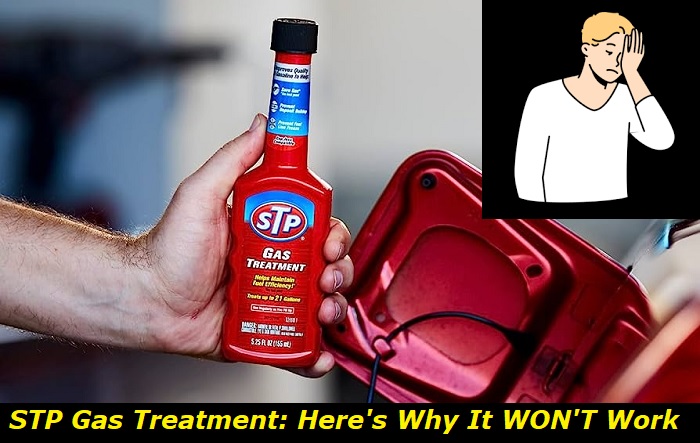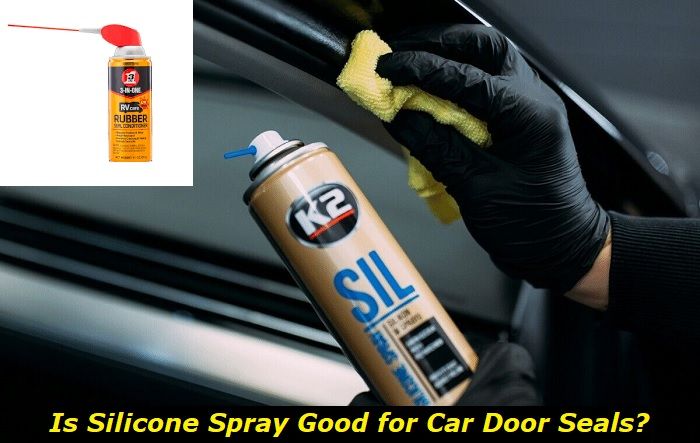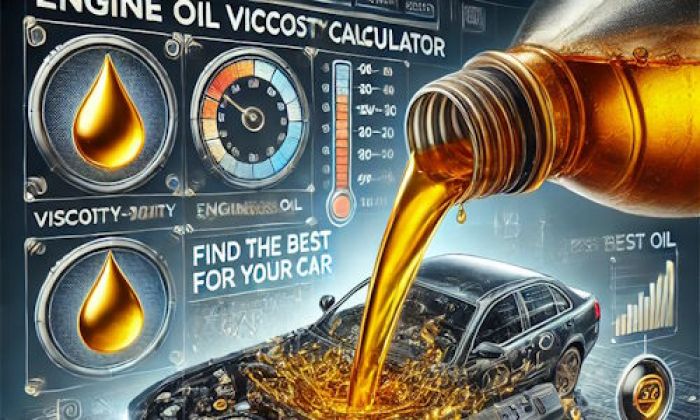STP Gas Treatment has been touted to work as a magic potion to enhance engine performance. It is marketed to enhance engine performance by preventing deposit buildup, reducing gas usage, and preventing fuel line freezing. But does STP Gas Treatment genuinely work or is it just another marketing gimmick?
STP Gas Treatment does not work. The product has no scientific backing, provides no real benefits, and fails to deliver on the promises. Most if not all modern cars can achieve the benefits of STP Gas Treatment without any additives. Moreover, there are concerns that the product will result in buildups that can further worsen the situation.

This article will expose everything you need to know about STP Gas Treatment and why it does not work.
The Myth of STP Gas Treatment: Debunking the Claims
STP gas treatment has been touted as a miracle solution for your vehicle's fuel system. But does it stand up to the claims? The claims range from improving performance to cleaning the engine.
The claims range from cleaning your engine to improving your engine's overall efficiency. However, upon closer inspection, these claims don't hold up.
Claim One: Cleans Your Engine
The first claim is that STP Gas Treatment maintains a clean engine by preventing deposit build-up. While this could be true, remember that modern gasoline is already fitted with several other additives that are proven to keep your engine clean. Many report that the use of STP Gas Treatment does not bring about any change. Why would you invest in an additional product when regular gasoline could achieve just that?
Claim Two: Improves Fuel Efficiency
The manufacturer claims that STP Gas Treatment improves the quality of gasoline by introducing powerful cleaning agents. These cleaning agents reduce the build-up of harmful deposits in the fuel system, which can reduce the performance of your vehicle. This would be a desirable advantage if it were true.
Instead, most drivers do not even notice the slightest increase in fuel efficiency after using the product. This could be because the supposed effective cleaning agents are not as effective as advertised.
Again, this sounds great in theory but falls flat in practice. Most vehicle owners do not notice a significant increase in fuel efficiency after using STP. This could be because the supposed "powerful cleaning agents" are not as effective as advertised.
Claim Three: Prolongs Engine Life
The third claim is that STP Gas Treatment helps prolong engine life by reducing friction in an engine. This is perhaps the most dubious claim.
The useful life of an engine depends on many factors. While a clean fuel system is important, it's unlikely that a single additive would have a massive impact on its longevity. What's more, too many additives can cause build-ups of their own. As such, your engine is better off with just regular gas.
The Science Behind STP Gas Treatment: Why It Fails to Deliver
STP Gas Treatment is marketed as a magical solution. In this section, we will break down the science behind this product to give you a clearer picture of what to expect.
First things first, STP Gas Treatment is formulated with a combination of chemicals, including detergents, dispersants, and corrosion inhibitors. The makers claim that these ingredients work together to remove deposits from fuel injectors, clean the entire fuel system, and provide protection against corrosion.
These claims sound valid. However, there is a little flaw in their marketing plan; there is no evidence to support their claims. There is very little info about how the additive achieves its benefits as advertised.
What's more, the chemical composition of STP Gas Treatment raises doubts. It contains detergents and dispersants that are said to prevent the buildup of contaminants. However, modern gasoline formulations already include a range of additives that serve similar purposes. Gasoline detergents, for instance, are specifically designed to keep fuel systems clean and prevent the accumulation of deposits. As such, the effect of the STP Gas Treatment is little to none.
If there was a serious need for such additives, why do the vehicle manufacturers never recommend them? Instead, some manufacturers may even void your warranty for using it.
STP Gas Treatment Alternatives: Proven Ways to Boost Fuel Performance
Although I don't recommend any fuel additives at all, I can clearly say that many reader feel the urge to add something to their fuel tanks.
If you are one of them, just focus on the following products:
1) Red Line 60103 Complete SI-1 Fuel System Cleaner
Red Line SI-1 Fuel System Cleaner is a unique product that both cleans and prevents the build-up of moisture, carbon deposits, and debris in your fuel system. It contains polyether amines (PEA) content of between 32 to 50 percent. This is higher than most other fuel system cleaners on the market.
Red Line SI-1 makes use of a synthetic blend of ingredients to deliver impressive results every time. The product is also less likely to cause abrasive harm to your fuel system. This cleaner uses a unique synthetic upper-cylinder lubricant that can handle the lowest to the highest engine temperatures that your car has to endure.
Compared to other fuel system cleaners, Red Line Sl-1 fuel system cleaners are a bit costly. However, most reviews from past users praise the product for doing exactly what it is advertised for.
2) Chevron Techron Concentrate Plus Fuel System Cleaner
Chevron Techron Concentrate Plus Fuel System Cleaner is a fuel additive that helps to improve engine performance by cleaning it and removing deposits. It is trusted by motorists, mechanics, and auto manufacturers around the world. This fuel system cleaner is known for its ability to clean, restore, and protect the entire fuel system.
With its unique and patented polyether amine (PEA) technology, it excels in cleaning up deposits in fuel injectors, carburetors, intake valves, and combustion chambers. The best part is that Chevron sells it at a much lower price point compared to other similar products in the market that contain PEA. Also, the fact that you have to use it every 3000 miles means that you do not have to spend an extra dime every other day.
Going by the recommendations from experienced users, Chevron Techron Concentrate Plus Fuel System Cleaner is perhaps the best fuel system cleaner with a proven track record. On the downside, we do not recommend that you use this fuel system cleaner in diesel or two-stroke air-cooled engines.
3) Sea Foam SF16
The Sea Foam SF16 Motor Treatment is another worthy alternative to STP Gas Treatment. Sea Foam has been in business since 1942. They have withstood the test of time and have consistently produced top-quality products.
The Sea Foam Motor Treatment is known for its effectiveness in cleaning fuel injectors, carburetor passageways, chamber deposits, and intake valves. It also provides lubrication to upper cylinders and stabilizes fuels for up to two years. The product is made from petroleum ingredients, ensuring its safety and compatibility with various fuel types.
With a 4.8 out of 5-star rating from over 3,700 reviews on Amazon, the Sea Foam SF16 Motor Treatment is highly regarded by customers.
What else should you know about the STP product?
- Does gas treatment make gas last longer?
While STP Gas Treatment is purported to make your gas last longer, you should not expect any significant changes. The best that fuel system cleaners can do is to improve the efficiency of your engine. At best, you may not even notice a difference. If the vehicle is in great shape, there is no need to introduce fuel system cleaners.
- What are the side effects of using STP Gas Treatment?
STP Gas Treatment does not provide any real benefits. In most cases, it will result in inefficiencies that will mean burning more fuel and releasing more emissions. The worst that STP Gas Treatment can do is to buildup in your engine.
- What happens if you use too many fuel system cleaners?
Gas treatment solutions can have their benefits. However, too much of it can lead to several problems. First, excessive amounts can lead to buildups of their own. The harsh chemicals used can also damage several engine components.
Ironically, overuse can lower your vehicle's fuel efficiency rather than improve it. The motor may struggle to fully burn the treated fuel, leading to reduced mileage. With reduced fuel efficiency, you expect increased emissions.
Conclusion
STP Gas treatment is advertised to provide many benefits such as cleaning the fuel system, improving fuel efficiency, and preventing fuel line freeze-up. However, upon closer inspection, many users complain that the product is just a waste of time. Some reports even say that the product can further damage components in the engine.
If your car is operating efficiently, you should not bother with fuel additives as they can result in problems. Most modern engines can already take care of carbon deposits without any additives. However, if your car is not operating efficiently, you should consider using proven fuel system cleaners such as Red Line 60103, Chevron Techron Concentrate Plus, and Sea Foam SF16.
About the authors
The CarAraC research team is composed of seasoned auto mechanics and automotive industry professionals, including individuals with advanced degrees and certifications in their field. Our team members boast prestigious credentials, reflecting their extensive knowledge and skills. These qualifications include: IMI: Institute of the Motor Industry, ASE-Certified Master Automobile Technicians; Coventry University, Graduate of MA in Automotive Journalism; Politecnico di Torino, Italy, MS Automotive Engineering; Ss. Cyril and Methodius University in Skopje, Mechanical University in Skopje; TOC Automotive College; DHA Suffa University, Department of Mechanical Engineering






Add comment